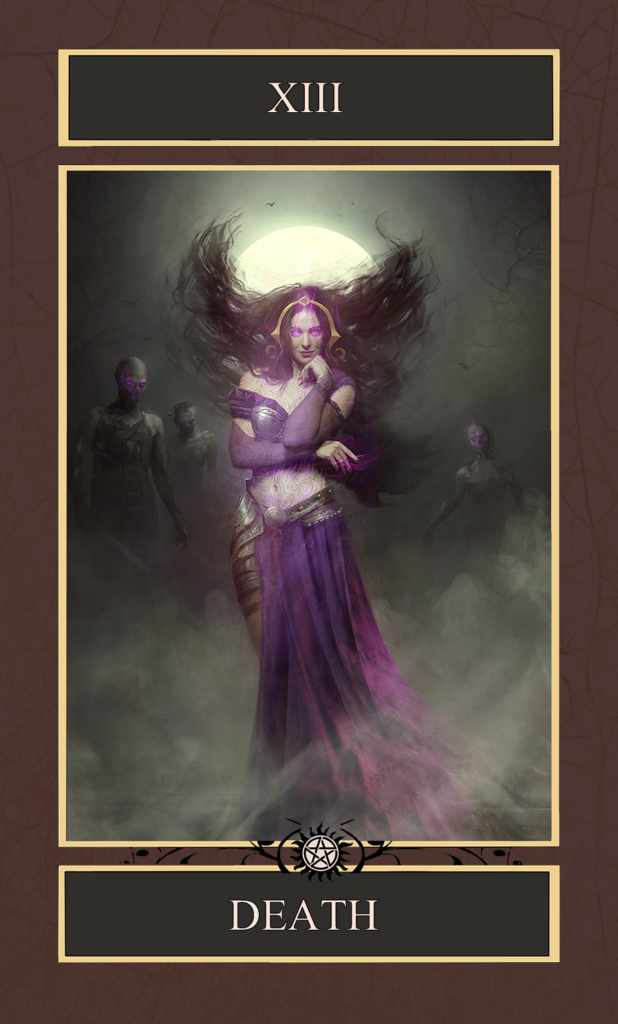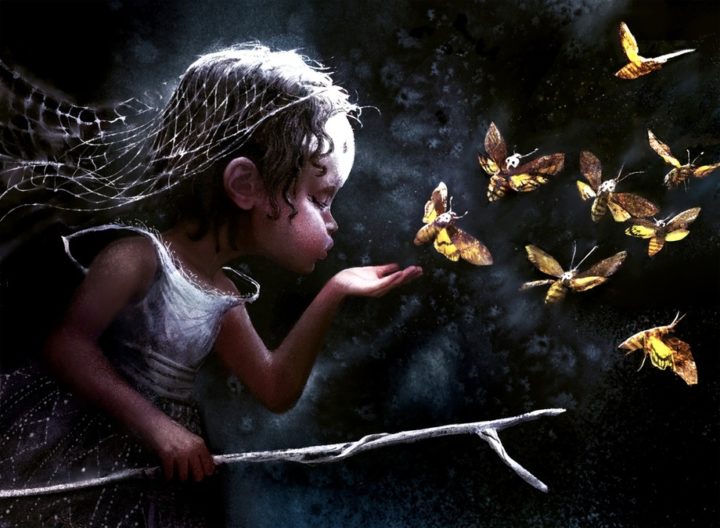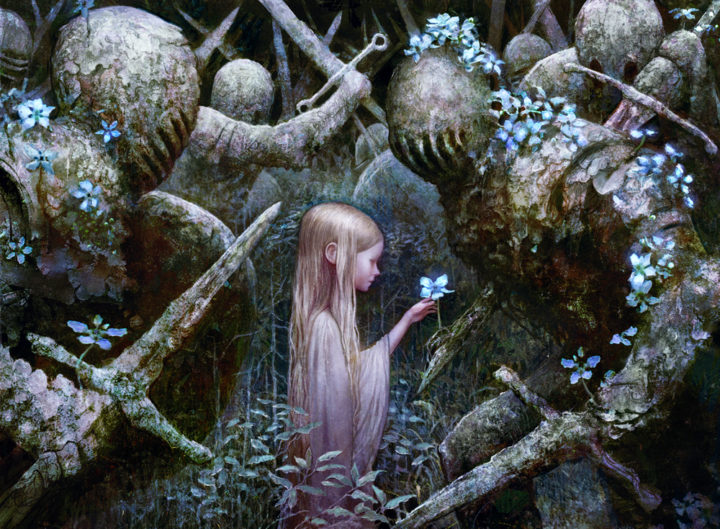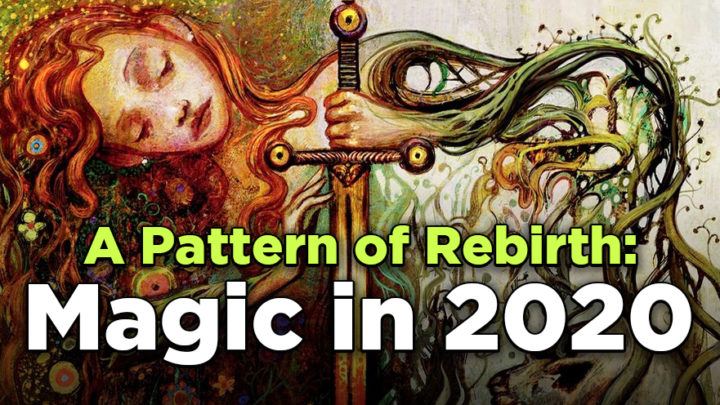If you’ve played Magic for any length of time, you’ll be familiar by now with the sometimes annual and oftentimes more frequent cry that “Magic is dead!” Players who have been playing much longer than you and I will have rolled out this rhetoric many times, from the first reprints in Fourth Edition and Chronicles, to the introduction of Planeswalkers, and many times since.
Is it fair to say that Magic is dead, though? Is this time any different?

Deathsprout
Magic is dead. And Magic has died. Many times, in fact.
It will continue to die and be reborn again as it continues to exist, and there’s nothing that we can do to change that. Before the latest controversy around the Walking Dead Secret Lair, Magic “died” at least a handful of times in the past twelve months alone — from the vast changes to professional play, to ban-bonanza Standard, to the retirement of the great BDM.
But Magic has continued to grow, and in many ways, it’s thriving. The thing is, Magic is constantly evolving and changing. For every Autumn’s wistful decline, we’re granted a Spring of new beginnings. The cycle of death and rebirth is timeless, and in viewing Magic objectively, it’s necessary to think about how it applies.
This reminds me of the reaction people often have when they receive the Death card in a Tarot reading. To any familiar with the Tarot, Death rarely means physical death. Instead, it indicates change and growth; a spiritual or ideological death, and the chance to reorient oneself.

Change is scary, though, and just like seeing Death appear in your reading, change is often a hard pill to swallow. To better understand and accept change, it’s necessary to evaluate why change is happening and why it might be needed.
Casual Causality
The easiest way to frame this is around a common stance I see a lot on Magic social media: the idea that “casuals” are ruining Magic. There’s a conflation here between two disparate facts: firstly, that there are a lot of casual Magic players buying Magic product and playing the game; and secondly, that Wizards is designing Magic with casual players in mind.
It’s easy to assume that correlation equals causation, but I wouldn’t have said it was that simple. The truth of the matter is that “casuals” are currently carrying Magic. During a pandemic with no organized play, who do you think is buying singles? Who do you think is cracking packs?
In fact, one of Magic’s greatest strengths is the diversity of the player base and the sheer number of ways to play. And, as often happens, one innovation in the game leads to another, and we can all reap the rewards. After all, Modern Horizons might not be possible without the success of Conspiracy or Battlebond.
It’s true that Wizards has identified a more casual market to tap into, but it isn’t necessarily to the detriment of other formats. While there are too many obviously “designed for EDH” cards in Standard sets that may be skewing other formats, we’re still receiving consistently stellar Limited environments. Standard might need fixing, but it isn’t the fault of the casual player base.
The addition of CommandFest to the event schedule shows the appeal of formats outside of Standard, and CommandFest’s ongoing success here is good for the overall health of the game. CommandFest demonstrates that where there is demand, there’s a gap in the market waiting to be filled. The increasing popularity of online Vintage and Legacy events — such as the upcoming Eternal Weekend — are signs that if there’s enough demand, anything can happen.
Many of my friends and I have never played Magic competitively, and to many a grinder, we would be classified as casuals. That doesn’t change the fact we’ve been disappointed at the lack of paper Magic coverage, or the fact that power creep is real in all formats right now, including EDH. The Commander players, the “casual” audience — they have all been acutely aware of how Magic is changing, long before Wizards set eyes on the Commander format, and in most forums, have been voicing their concerns right alongside Modern and Legacy players. Even kitchen table players have expressed their reservations about the mechanically unique cards in the Walking Dead Secret Lair product.
An important concept when comparing groups from a population is that often the variation within the group will be greater than the variation between the groups. In essence, this means that if you take a cross-section of opinions from the Legacy community, the Modern community, and the Commander community, there will be less variation between the groups, on average, than when taking opinions within one of those groups exclusively.
There’s nothing to say that competitive Magic and casual Magic can’t sit side by side, and nothing to say that they can’t both be appreciated by the same portion of the playerbase. We’re all the same: we love Magic.
Overwhelming Stampede
It doesn’t matter what format we play, or how we engage with the game. Most of the time, we’re going to be in agreement. At the end of the day, we’re all Magic players, and when there’s something to bring us together? Boy, do we come together. It’s just a shame that the thing that galvanized us most recently, and most effectively, was negativity and anxiety around a product line.
Now, obviously, it’s a lot harder to get people to come together positively, especially when a lot of our platforms and ways of engaging on the internet reward negativity. The outpouring of engagement, criticism and rallying that happened a few weeks ago, though, was both inspiring and damning.
We need to be better about directing this energy. There are many barriers to entry for this game, and while complexity is something we can’t do much about – and something I think it’s incorrect to focus on reducing, from a design perspective – the one thing we can do is make the game more welcoming to more people, more of the time.
Though we’re continually making strides in the right direction, the parties affected most often shoulder too much of the burden. If we as a community can put the same effort into making the game a safe, welcoming environment for every disenfranchised player as we did into complaining about things we don’t like, we’d be a lot further forward than we currently are.
The winds of change are always blowing, and having such great representation in the Grand Finals this past weekend in Emma and Autumn is fantastic, but there’s still a lot of work to be done. In time, more and more people will join this community, but in the meantime, we need to continue to work to make sure that they can.
And the work we do? It’ll build and change Magic, and it will inspire us with new meaning.

Long Live Magic
Magic will always mean something different to us today than it did yesterday, and that’s just something we all need to accept. I’m not going to debate about whether Wizards have pruned too far when shedding the dead wood; in short, I think they’ve made a number of decisions which have fundamentally changed the game lately, and I don’t agree with all of them. The fact of the matter is, though, regardless of how we feel about the direction of the game, the game itself is doing pretty well — and when the game does well, we all stand to benefit.
While each new change to the game leads further and further from where we began, it doesn’t necessarily spell the “doom” of Death. It’s easy to concentrate on entropy, and the idea that things will never be as good as they used to be – hell, one of the most popular stories ever told, Lord of the Rings, deals with the complexities of that nostalgia.

The world is always changing, and we should be, too. If you truly can’t find joy in Magic right now, I’m not going to try and tell you otherwise — that’s up to you. Take a break.
Me, though? I had a short break, and it gave me some clarity. Being a content creator means I’m more invested than the average player, and at times like this, it’s truly difficult to process my feelings objectively. While I am concerned with some aspects of Magic, I’m also aware of what battles to pick, and what battles are worth fighting.
Taking the time to meditate on this has helped me find my joy in Magic again, and it’s been a rewarding process. I’ve been on a deck-building spree, played some fantastic games of EDH over SpellTable, and added some new creators with a passion for the game to my watchlist. I’m not alone, either. The community has re-centered itself over the past week, and it’s great to see.
Magic will never truly “die,” as long as we have the community to play it, and cultivating that community is a great way to find meaning within the game. Magic is much more than a game, and though it’s easy to deride people that invest so much of themselves into it, we should give those people some grace. Passion is a good thing, and passion is what keeps this twenty-seven year old game alive.
If we can direct that passion in the right direction, who knows what we can accomplish?

Kristen is Card Kingdom’s Head Writer and a member of the Commander Format Panel. Formerly a competitive Pokémon TCG grinder, she has been playing Magic since Shadows Over Innistrad, which in her opinion, was a great set to start with. When she’s not taking names with Equipment and Aggro strategies in Commander, she loves to play any form of Limited.

